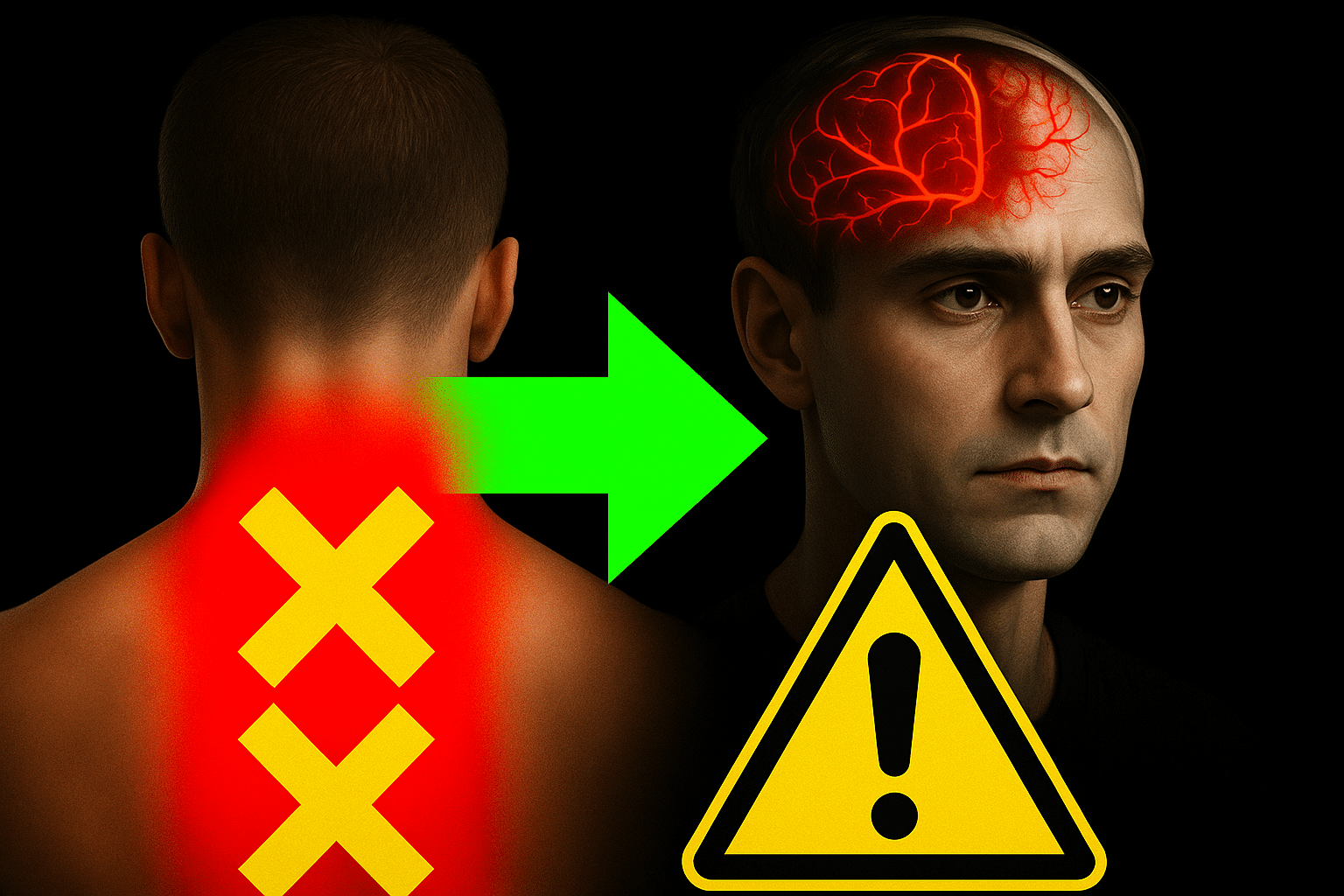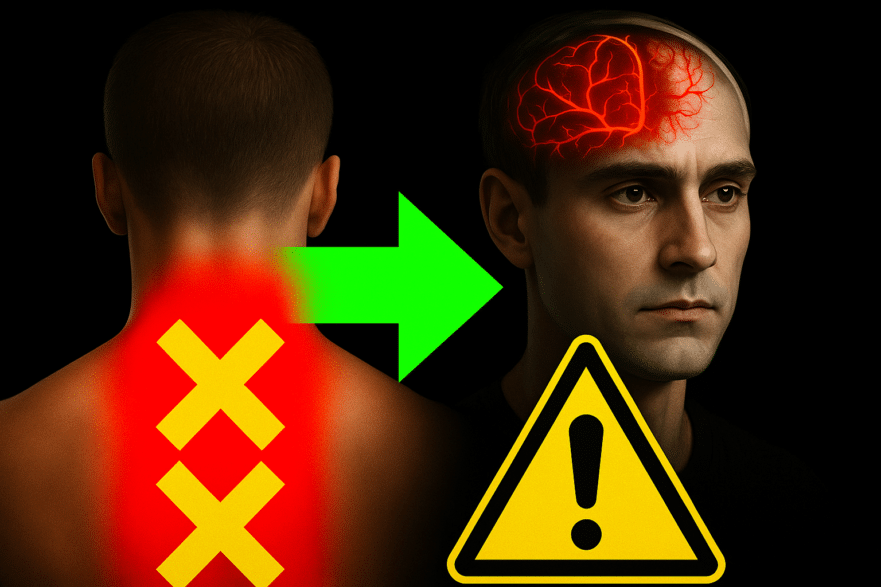
Pay close attention. Your body is constantly communicating with you, and sometimes, it sends out warning signals that you absolutely cannot afford to ignore. While it’s easy to dismiss a new ache or a strange symptom as just a part of life, some signs can be your body’s way of telling you that something more serious, like cancer, could be developing. Recognizing these signs early is your most powerful tool for taking control of your health and seeking timely medical advice.
In this article, we’re going to break down nine potential cancer warning signs that your body might be sending you. Think of this as a guide to becoming more aware of what’s normal for you and what isn’t. Understanding these signals is the first step toward knowing when to act and how to have an informed conversation with your doctor. Remember, knowledge is power, and being proactive about your health is the best defense you have. (Based on the insights of Dr. João Sorio)
Key Takeaways
- Listen to Your Body: Unexplained and persistent changes in your body’s normal functioning should always be taken seriously and never be ignored.
- Common Signs Aren’t Always Benign: Symptoms like significant weight loss, overwhelming fatigue, and changes in bowel habits are major red flags that require a professional medical evaluation.
- Look for the Unusual: Things like unexplained bleeding, sudden blood clots, progressive pain, or recurring fevers are serious signals that warrant an immediate visit to your doctor.
- Early Detection is Crucial: Identifying cancer in its initial stages dramatically increases the chances of successful treatment. These signs are your body’s early alert system.
1. A New or Growing Lump in Your Neck (Thyroid Nodule)
One of the first signs you should be highly aware of is a new lump, mass, or nodule in your neck, specifically related to your thyroid gland. You might feel it yourself, or a doctor might notice it during a routine exam. Why is this so important? Because most thyroid cancers begin as a nodule that starts to grow. While it’s true that the vast majority of thyroid nodules are benign (harmless), it is absolutely essential to have any new or growing nodule investigated. A doctor’s assessment is a must, as it could be a sign of a very common type of cancer. If you notice a lump, your doctor will likely recommend two key steps: an imaging test, usually a thyroid ultrasound, to examine the nodule’s characteristics, and a blood test to check your thyroid function. These tests will help determine if a biopsy is needed and what the next steps should be.
2. Unusual Bleeding or Clotting
This sign is a tale of two extremes: bleeding when you shouldn’t be, and clotting when there’s no reason for it. Unexplained bleeding is a classic warning sign. This could manifest as blood in your urine, blood in your stool, coughing up blood, or even noticing that a small cut bleeds much more than usual. Cancer can cause this by rupturing blood vessels as it grows. For example, kidney cancer can lead to bloody urine, and stomach or intestinal cancer can cause bloody vomit or stool.
The other, more surprising extreme is the formation of blood clots (thrombosis), especially in the deep veins of your legs. Many people are caught off guard by this sign. Certain cancers release procoagulant factors into the blood, making it “stickier” and more prone to clotting. If you develop a blood clot without any clear cause—like recent surgery, long-term immobilization, or pregnancy—it’s a major red flag. This is incredibly serious, as a piece of the clot can break off, travel to the lungs, and cause a life-threatening pulmonary embolism. If you experience unexplained clotting, it’s critical to investigate for an underlying cause, including cancer.
3. Significant, Unexplained Weight Loss
Losing weight without trying might sound appealing, but it can be a very serious sign. The clinical red flag is losing 10% or more of your body weight in six months or less without changes to your diet or exercise routine. This happens for a few reasons. Many cancers can suppress your appetite or cause nausea, leading you to eat less. In other cases, the cancer itself can increase your body’s energy consumption, essentially burning through calories and causing you to lose weight even if your eating habits haven’t changed. While other conditions like diabetes or an overactive thyroid (hyperthyroidism) can also cause weight loss, cancer must be considered and investigated, especially if those other conditions are ruled out.
4. Persistent and Overwhelming Fatigue
We’re not talking about the normal tiredness you feel after a long day. This is a profound, persistent fatigue that doesn’t get better with rest. You might wake up feeling exhausted or find that your physical fitness has plummeted. One of the most common reasons for this in cancer patients is anemia, which is a reduction in your red blood cell count. Red blood cells are responsible for carrying oxygen throughout your body, and when their numbers are low, you can experience debilitating fatigue, pale skin, shortness of breath, weak nails, and hair loss. Cancer can cause anemia through chronic, unnoticed bleeding (like in the digestive tract) or by affecting the bone marrow where red blood cells are made. A simple complete blood count (CBC) test can detect anemia and provide clues about its cause, making it a vital step in the investigation.
5. Changes to a Mole or a New Skin Spot
Your skin is your body’s largest organ, and you should pay close attention to it. A particularly aggressive form of skin cancer, melanoma, often presents as a new or changing mole. You can use a simple checklist to look for warning signs. Be on the lookout for moles that are asymmetrical (one half doesn’t match the other), have irregular or jagged borders, display multiple colors (shades of brown, black, red, or blue), have a diameter larger than a pencil eraser, or are evolving (changing in size, shape, or color). Other red flags include a mole that starts to itch, bleed, or become raised. It’s crucial to monitor your skin and see a doctor—a general practitioner or a dermatologist—for any spot that looks suspicious. When caught early, melanoma is highly treatable, but it becomes much more dangerous if it’s allowed to spread.
6. A Persistent Change in Your Bowel Habits
Any significant, lasting change in your normal bowel pattern is a noteworthy sign that could point to colon or bowel cancer. Many people assume this only means diarrhea, but it can also mean new or worsening constipation, or even alternating between the two. Other associated symptoms include stools that are thinner than usual (pencil-thin), the presence of blood in the stool (which can make it look dark or black), persistent abdominal cramping, or a feeling that you can’t completely empty your bowels (a sensation known as tenesmus). If you experience these symptoms, especially if they are new and persistent, it’s time to see a doctor. The definitive test for investigating suspected colon cancer is a colonoscopy. Don’t let fear of the procedure delay a diagnosis; it is the most reliable way to find out what’s going on.
7. Swollen Lymph Nodes Without an Infection
Lymph nodes are small, bean-shaped glands throughout your body that are part of your immune system. You’ve likely felt them swell in your neck or under your jaw when you’ve had a cold, flu, or throat infection. This is a normal response. However, if you have enlarged lymph nodes that are persistent and you don’t have an active infection, it’s a cause for concern. This could be a sign of lymphoma, which is a cancer of the lymphatic system itself. It can also happen when cancer from a nearby organ spreads (metastasizes) to the lymph nodes, causing them to swell. If you notice a swollen, firm, and painless lump in your neck, armpit, or groin that doesn’t go away, you need a medical evaluation to determine the cause.
8. Pain That Gets Progressively Worse
Pain is another signal that is often overlooked, but a specific type of pain should raise alarms: pain that is progressive. This isn’t just a random headache or a sore muscle. It’s a pain—whether it’s a headache, abdominal pain, or bone pain—that steadily intensifies over time. You might find yourself needing more and more pain medication, or that the usual doses are no longer effective. This progression is a key indicator that something is wrong. A growing tumor can press on nerves, bones, or organs, causing pain that worsens as the tumor gets bigger. Don’t wait for the pain to become unbearable. If you have a persistent pain that is clearly getting worse, it’s a sign that you need to seek medical help to find the underlying cause.
9. Recurring Fever or Drenching Night Sweats
A fever is your body’s natural response to an infection. But what about a fever that has no clear infectious cause? A persistent, low-grade increase in body temperature, especially one that tends to spike in the evening or at night, can be a sign of cancer. This is sometimes accompanied by drenching night sweats—the kind that are so severe you have to change your pajamas or bedsheets. This symptom combination is never normal and should always be investigated. Certain cancers can produce substances that affect the body’s temperature regulation. If you’re experiencing recurring fevers or night sweats without an obvious illness, it’s a symptom that your doctor needs to know about.
Conclusion
Your body has a remarkable ability to signal when something is wrong. These nine signs are not a definitive diagnosis of cancer, but they are a clear and urgent call to action. By learning to recognize them, you empower yourself to be a proactive partner in your own healthcare. Don’t dismiss persistent or unusual symptoms. Instead, view them as important information. Schedule an appointment with your doctor, discuss your concerns openly, and get the answers you need. Early detection remains the single most important factor in successfully treating cancer, and it all starts with listening to what your body is trying to tell you.
Source: Dr. João Sorio

